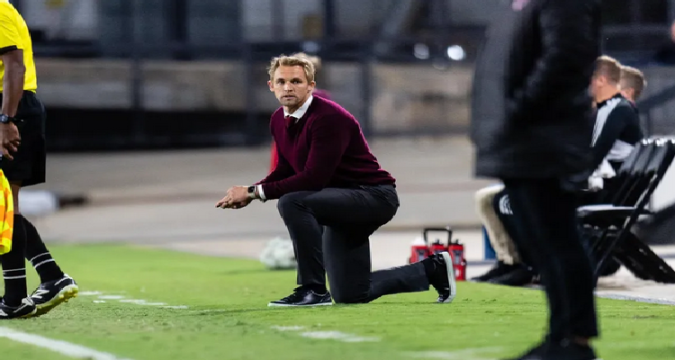
In the realm of sports, a coach’s role is akin to that of a captain navigating a ship through both calm and stormy waters. The responsibilities they shoulder extend beyond mere game strategy and skill development. A coach must embody leadership, mentorship, and organization, creating a cohesive team that strives for success both on and off the field. In this article, we will explore the multifaceted responsibilities of a coach in a sports club and how these duties shape the experience of athletes and the club as a whole.
1. Developing a Strategic Vision
At the heart of every successful team is a well-defined strategic vision. The coach is tasked with establishing the long-term objectives for the team, whether they involve winning championships, improving individual player skills, or fostering a positive team culture. This vision acts as a guiding star, directing all team activities and decisions.
To develop this vision, coaches must engage with athletes, parents, and club officials to understand the expectations and aspirations of all stakeholders. This collaborative approach not only ensures buy-in from everyone involved but also fosters a sense of shared purpose within the team. Once the vision is established, it becomes the foundation upon which all training sessions, practices, and competitions are built.
2. Crafting Effective Training Programs
One of the most critical responsibilities of a coach is designing and implementing effective training programs. These programs must cater to the specific needs of the athletes while aligning with the team’s overall strategic vision. A comprehensive training regimen incorporates skill development, physical conditioning, mental preparation, and teamwork exercises.
Coaches should assess the strengths and weaknesses of each player to create tailored training plans. This individual attention not only enhances performance but also fosters athletes’ confidence and motivation. Regularly evaluating the effectiveness of these programs allows coaches to make necessary adjustments, ensuring that athletes remain challenged and engaged throughout the season.
3. Fostering Team Cohesion
Team cohesion is essential for success in sports. Coaches play a pivotal role in cultivating a positive team environment where players feel valued and respected. This involves promoting open communication, collaboration, and mutual support among team members.
Team-building activities, both on and off the field, are vital for strengthening relationships among players. Coaches can organize events like team outings, group discussions, or community service projects that encourage bonding and trust. By fostering a sense of belonging, coaches help athletes work together more effectively, ultimately enhancing team performance.
4. Mentoring Athletes
Beyond technical training, coaches serve as mentors for their athletes. This mentorship encompasses personal development, teaching essential life skills such as discipline, resilience, and teamwork. Coaches have the opportunity to influence their athletes positively, shaping not just their athletic abilities but also their character and decision-making skills.
Coaches should take the time to understand each athlete’s individual goals, challenges, and aspirations. By providing guidance and support, coaches can help athletes navigate the complexities of both their sports journey and their personal lives. This holistic approach fosters a deeper connection between coaches and athletes, resulting in a more engaged and motivated team.
5. Effective Communication
Clear and effective communication is paramount in coaching. Coaches must articulate their expectations, strategies, and feedback to athletes, ensuring that everyone is on the same page. This requires not only speaking clearly but also listening actively to athletes’ concerns and suggestions.
Regular feedback is crucial for athlete development. Coaches should provide constructive criticism that focuses on specific areas for improvement while also recognizing individual and team successes. This balanced approach helps maintain motivation and fosters a growth mindset among athletes.
Additionally, coaches must communicate with parents, club officials, and other stakeholders. Keeping all parties informed about team progress, schedules, and expectations creates a supportive environment that benefits both athletes and the club as a whole.
6. Administrative Responsibilities
While coaching involves a significant amount of hands-on work, it also requires a variety of administrative tasks. Coaches are responsible for managing practice schedules, organizing travel arrangements for competitions, and overseeing equipment needs. These logistical duties are essential for ensuring that the team operates smoothly and efficiently.
Coaches must also engage in strategic planning for the season, analyzing opponents and developing game strategies. A well-prepared team is more likely to perform effectively during matches, making the coach’s planning efforts crucial to success.
7. Promoting a Positive Club Culture
Coaches play a key role in shaping the culture of the sports club. They should promote values such as respect, sportsmanship, and inclusivity, both on and off the field. A positive club culture encourages participation, builds loyalty, and attracts new members.
Coaches can instill these values by modeling appropriate behavior and emphasizing their importance in all interactions. By creating an environment where athletes feel safe and valued, coaches help foster a sense of community that extends beyond the field.
Conclusion
In conclusion, “The Coach’s Playbook: Navigating Responsibilities in a Sports Club” highlights the diverse and significant roles that coaches play in shaping athletes and teams. From developing a strategic vision and crafting effective training programs to mentoring athletes and fostering team cohesion, coaches are instrumental in creating a successful sports club. By embracing these responsibilities and committing to the holistic development of their athletes, coaches can inspire their teams to achieve greatness both on and off the field. In doing so, they not only contribute to athletic success but also help cultivate the next generation of leaders, teammates, and community members.